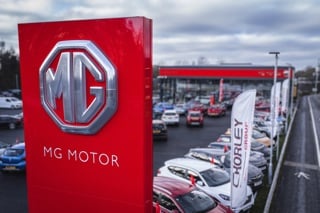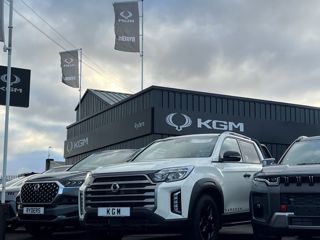An essential part of the retail success was the simplicity and consistency of its campaigns. Williamson said the dealer feedback was that Seat was an easy brand to deal with, compared with some other larger brands, which regularly change tactics mid-quarter. Lack of consistency is a challenge for staff on the showroom floor. It also risks impacting on the customer experience, for example if they’ve begun doing their research online while one particular promotion is in place only to find it abandoned by the time they’ve made their purchase decision.
“Right at the sharp end, we have sales guys who are totally clued up on what the deal is. It’s straightforward – so when customers come in looking for those cars they can be offered the right deal.”
The advantages of Seat's multi-franchise approach
That simplicity is also important given that more than half of Seat UK’s dealerships are in multi-franchised showrooms or locations. As a franchise with a 2% market share and products that compete in the core segments against much larger players, Seat is often heavily reliant on sharing overheads with other brands. One dealer recently told AM it was often unsustainable to operate a standalone Seat dealership without significant support from the manufacturer.
Williamson wouldn’t reveal the Seat UK network’s average return on sales for 2013, but when asked whether it was above the ASE national average of 1.6% he said it was “getting towards that”. He added that the top quartile dealers were making four times the average.
Its suitability as a multi-franchised operation isn’t a weakness. Seat’s franchising team has had considerable attention from dealers with large facilities representing brands that have seen deterioration in market share, such as Renault and Citroën, and several Chevrolet retailers have begun talks since the termination of that franchise in Europe was announced.
Seat’s network has strengthened in the past couple of years. Major dealer groups have adopted the franchise, such as Pendragon, Vertu Motors, Marshall Motor Group and Johnsons Cars, all of which will play a part in achieving Seat’s long-term growth ambitions. Williamson sees their willingness to invest in the franchise – Vertu has even opened a solus dealership in Birmingham – as a recognition of the brand’s potential.
In Johnsons’ and Marshall’s cases, their addition of Seat came at the expense of two VW Group-sponsored retailers, Liverpool Seat and Grants Seat. AM understands that both were acquired after crucial manufacturer funding was withdrawn, leaving the core business unsustainable and facing administration.





















Login to comment
Comments
No comments have been made yet.